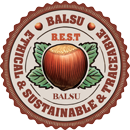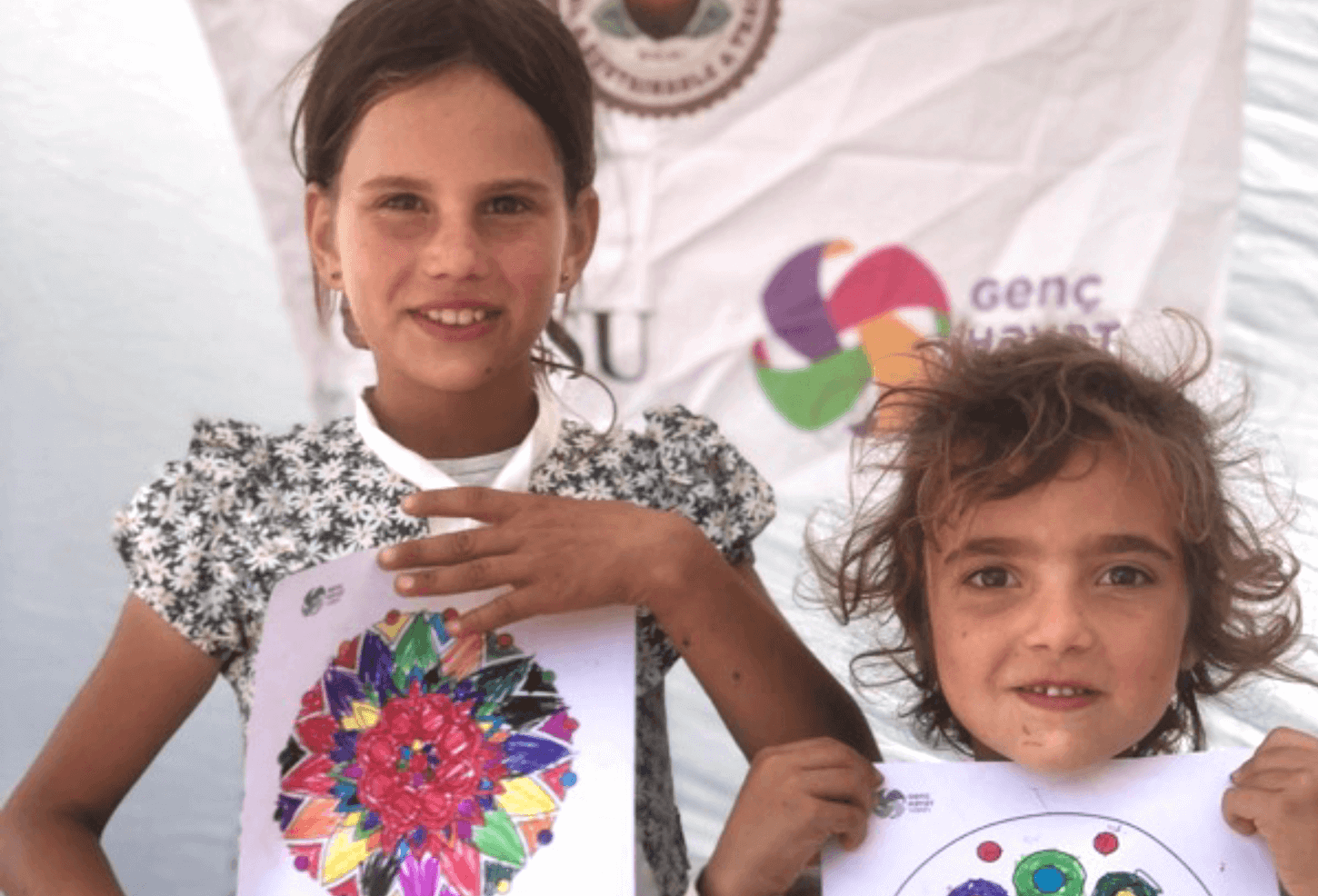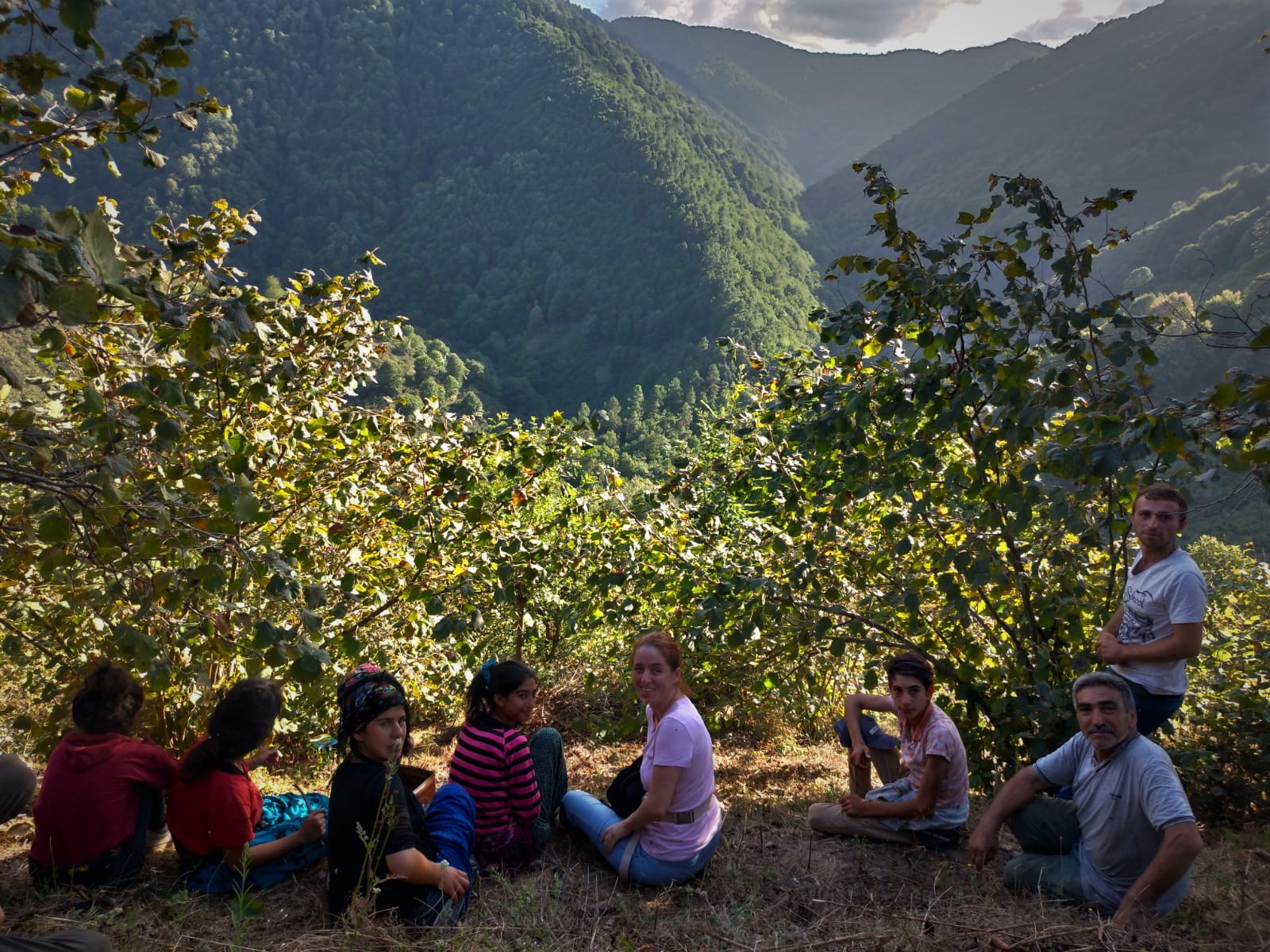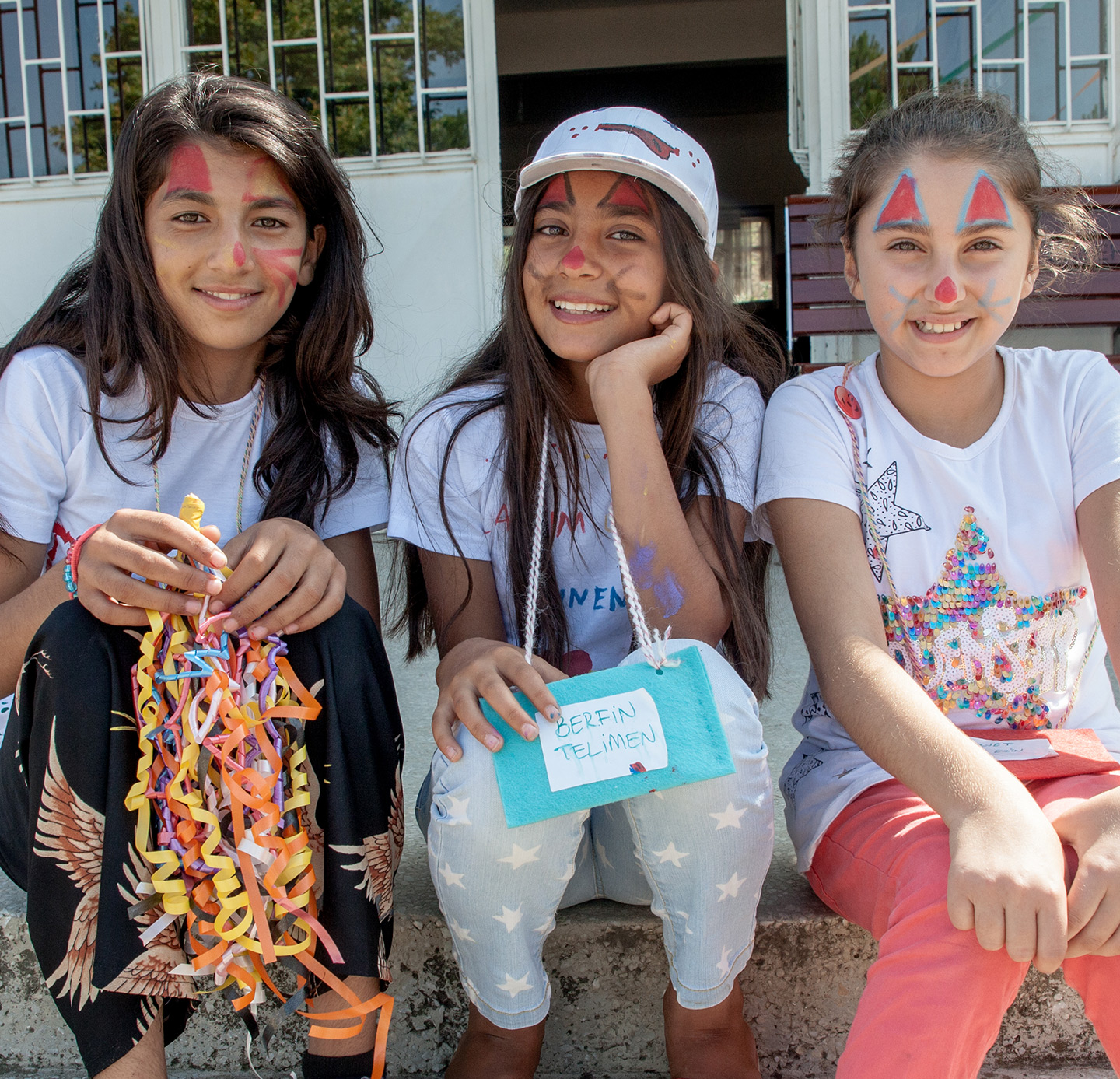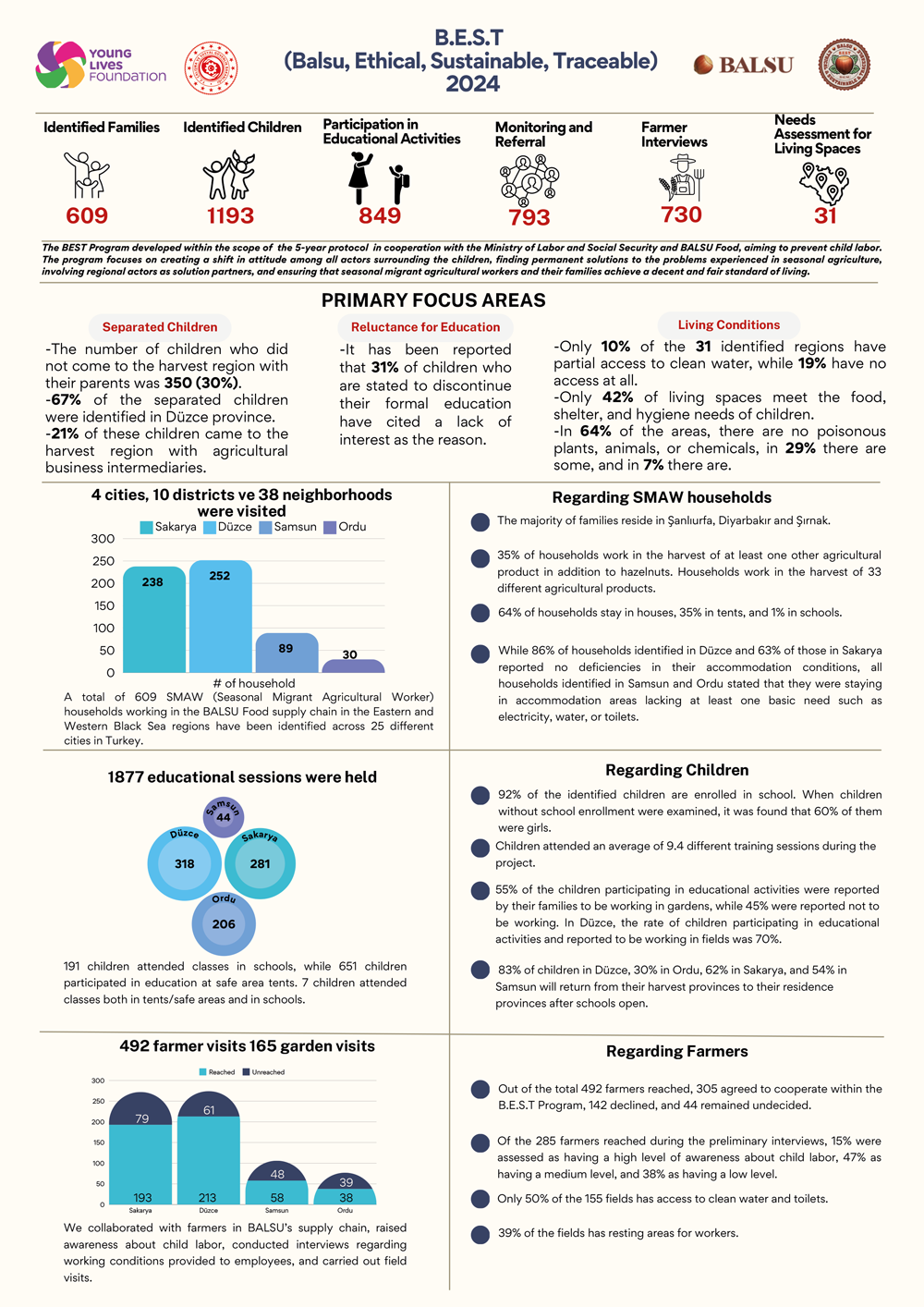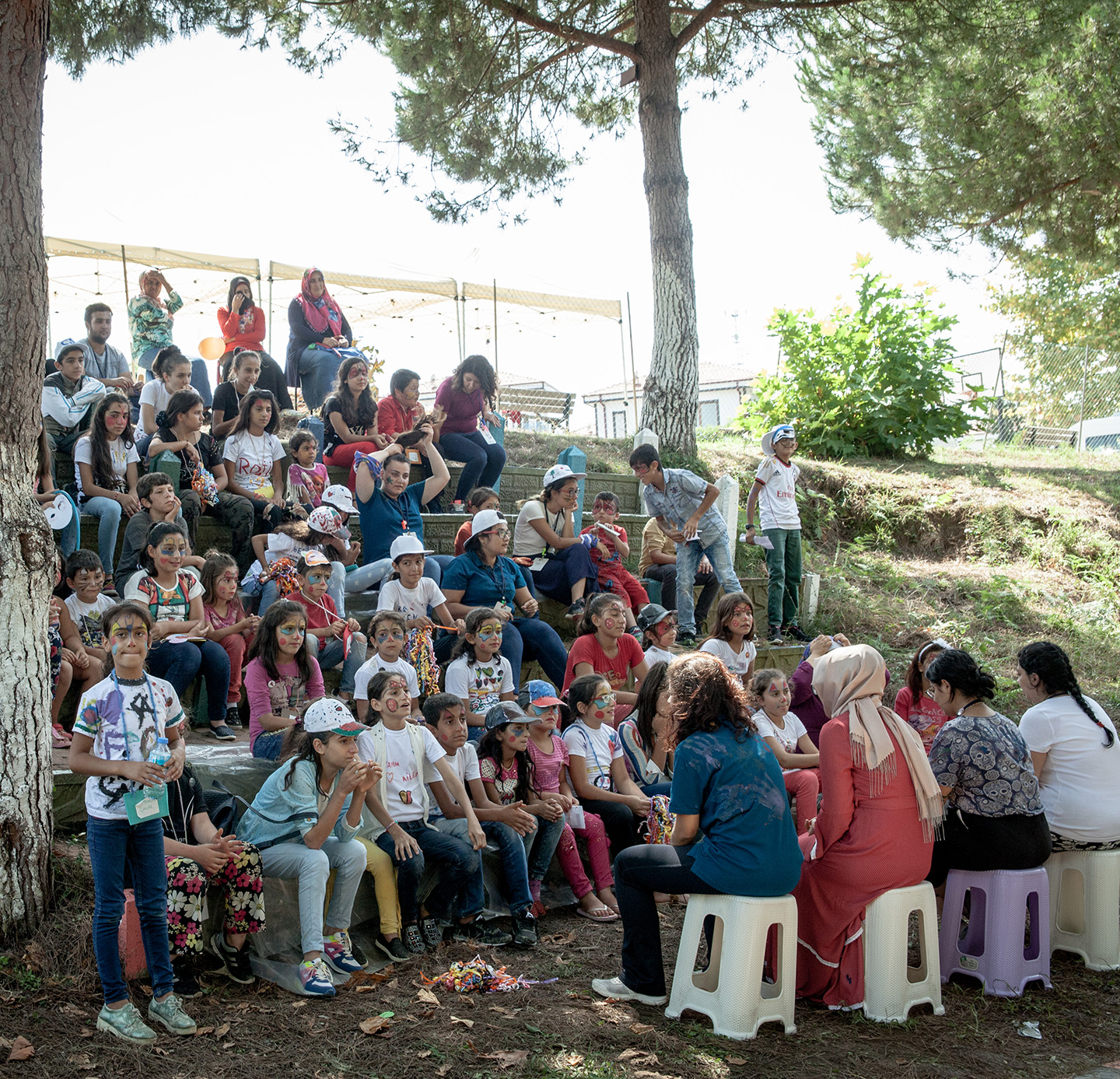In 2024, Balsu took its social responsibility and sustainability goals in the agricultural sector a step further by launching the B.E.S.T (Balsu, Ethical, Sustainable, Traceable) Program. This innovative program aims to create an ethical, environmentally friendly, and traceable production model in the agricultural sector by combining sustainable agricultural practices with social responsibility projects. As a pioneer of sustainable agriculture since 2009, Balsu is further strengthening its commitments with the B.E.S.T Program.
Objectives and Activities of the Program
The B.E.S.T Program was launched with the aim of ensuring that seasonal agricultural workers and their families have more decent living and working conditions, preventing child labor, and enhancing sustainability in hazelnut production. The program develops a fair and sustainable agricultural model in collaboration with local authorities and stakeholders, by prioritizing environmental and social responsibilities at every stage of agriculture.

